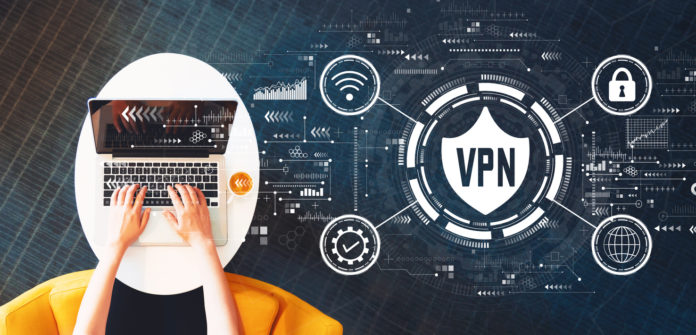Technological innovation is all around us. It seems that every day something new has the potential to change our lives. Sometimes innovation needs to be tempered with a bit of security. Every internet user should pay special attention to protecting privacy and security. Safe internet use must become rule number one for all of us
There are several ways to protect personal information and device security. Virtual Private Networks (VPNs) and proxy servers are the most effective tools available to most consumers. These tools help to hide sensitive information from potential hacking attempts. Users accessing the Internet via a VPN or a proxy can access online content securely. Both provide a strong shield against advanced tools used to track internet use and capture data.
Middle Eastern Users Looking For VPNs Or Proxy Servers
Both services are generally popular among users across the world. However, there are regions where VPN and proxy use is more common. The Middle East is one of those areas where these security measures are more common. There are many reasons why but privacy from snooping is number one. Some countries of the region place restrictions that limit the users’ internet experience. VPNs and proxies can help skirt these restrictions. The type of content restricted depends on the area, but some places ban casinos while others ban adult content. It simply depends on local laws.
According to Kazem Masalma, gaming expert of a7labet.com, gamblers use VPNs to play casino games without restriction. Masalma reviewed the main differences between VPNs and proxy services. It is important to understand which solution is the right one for an individual’s needs. In fact, many do not know the differences between VPN and proxy servers.
VPN services offer security on the network traffic level. A proxy server provides security on an application level. Both services hide the user’s IP address from potential hackers. Only a VPN can redirect the user’s internet data to an encrypted channel. A proxy turns out to be excellent to secure the users’ internet browsing. Let’s see more about how VPNs and proxy servers can protect the users’ internet experience.
Most Demanded Types Of Proxy Servers
A proxy acts as an intermediary between the internet and the user’s device. It uses a different Internet Protocol (IP) address than the user’s. This allows the user’s internet activities to appear to be the result of another IP address. There are several types of proxy servers for different needs. Here we show you only some of the most demanded services:
Forward proxy
- Forward proxy services are suitable for internal networks with a single entry point. The system analyzes the user’s request to enter the network before it allows them to connect. Forward proxy services provide IP address security for all the users in the network.
Transparent proxy
- A transparent proxy provides the user with the same internet experience as through their home device. That’s why it’s called “transparent”. This type of proxy is designed for companies that want their employees to work from home. Most workers don’t even realize they are utilizing a proxy service. However, transparent proxies can be subject to hacking threats.
Anonymous (Anon) proxy
- If the user wants to be untraceable when browsing the internet, an anon proxy is the best tool to consider. It hides the user’s identity and their computer’s IP. Anon proxies look similar to anon IG viewer services. The anon proxy provides users with total anonymity through the internet. An IG viewer works on an application level for Instagram only. The anon IG service allows the user to experience anonymous navigation only on Instagram. While the anon proxy does the job all through the internet.
High anonymity proxy
- The users who need a one-step further anonymity should use a high anon proxy. It deletes the users’ information before the proxy starts connecting to the site.
Distorting proxy
- Distorting proxies change their IP to deceive the site’s tracking system. This is also effective if anyone else attempts to track the user’s internet activity. Distorting proxies help protect geographical location data by providing a different location when accessing.
Most Effective Types Of VPNs
VPNs do a similar job to proxies as they make the user’s traffic appear from a remote IP address. The main difference is that VPN runs the traffic through an encrypted tunnel between the VPN and the user’s device. As you can see, VPNs are a strong and effective tool for securing a network. The user can safely access online content by using a VPN instead of an open Wi-Fi connection from public places. We can find many types of VPN services, of which the following points show you the most effective:
Corporate VPN
- A corporate VPN provides companies and businesses with high internet protection. Regardless of where the employees connect to the company’s device it will be secure.
Individual VPN
- An individual VPN provides the end user with the best internet security for their private browsing experience.
Conclusion
As a general definition, VPNs provide users with a safer experience than proxies. VPNs encrypt their data before sending it to the site, while proxies can’t encrypt the user’s connection. Each system handles the user’s data differently. Proxies work as an intermediary between the user and the internet. VPNs hide the user’s location and device IP while encrypting their connection. This allows the user to avoid an ISP or router decrypting it.
When it comes to speed, proxies win over VPNs. The nature of the VPN may slow down the connection if the server’s location is very far from the user. It’s important to know that neither a VPN nor a proxy can protect you 100%. Both services provide very high-level security for different internet browsing needs.







[…] legalizing the online casino industry. US based gamblers no longer need to worry about things like VPNs or proxies to skirt regulations and play. Legalization brings a variety of opportunities. The push started in […]